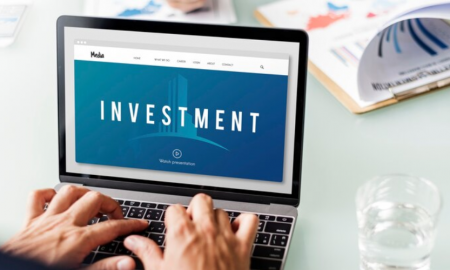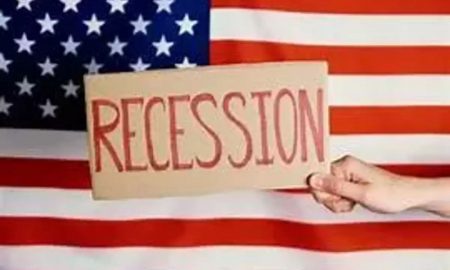
Here’s How Inflation Might Affect Your Retirement Planning

Most people tend to overlook one of the most important factors during retirement planning – inflation. If you look at the previous three decades or so, inflation every year has been around 3% on an average. It’s quite surprising that people don’t attach that much importance to inflation while applying all strategies to accentuate their savings.
The price of goods and services rises due to inflation. If inflation happens at a 3% average rate in 2019 and 2020, the same goods and services will cost you 6% more in 2021. So, if you don’t take inflation into account, the chances are that your money won’t last you long. Inflation certainly has a huge impact on your savings set aside for retirement. How? Find out.
The Effect of Inflation on Investment and Savings

If you are one of those people who prefer to push their money in investments and into their savings account, their value will automatically come down due to inflation. For example, if you keep aside $5000 every year for 30 years, you will have $505,365 in your hand once that time is over. And that is if you are receiving an annual return of 7% throughout. That is indeed impressive.
However, unfortunately, inflation won’t allow you to lay your hands on that amount. The value of $505,365 in the future will approximately be equivalent to what $208,204 is in today’s time. You will have the same amount of dollars then. However, the value of those dollars will be much less than it is now, owing to inflation. As inflation would force the cost of goods and services to rise, you will have to pay for the future price tags.
Social Security and Inflation
 A majority of the senior citizens rely on the benefits they receive from Social Security. These benefits are affected by inflation. The Social Security benefits get COLAs or cost-of-living adjustments because of inflation. As per the reports, the recipients were awarded a 2.8% adjustment in 2019, the highest one in seven years.
A majority of the senior citizens rely on the benefits they receive from Social Security. These benefits are affected by inflation. The Social Security benefits get COLAs or cost-of-living adjustments because of inflation. As per the reports, the recipients were awarded a 2.8% adjustment in 2019, the highest one in seven years.
While these adjustments are good for the seniors, many observers think that the exact pace of inflation is underrated by the benchmark used by the Social Security Administration.
The SSA measures the annual price changes. The determining factor is the CPI-W or Consumer Price Index for Urban Wage Earners and Clerical Workers. Once that’s done, the SSA decides whether it should award a COLA or not. If yes, then how much the adjustment should be. However, the CPI-W doesn’t attach much significance to those sectors that have gone through a high price increase. For instance, the healthcare sector has experienced a steep rise in prices compared to the other sectors.
The cost of prescription drugs has experienced a rise of 188% between 2000 and 2018. This is as per the reports furnished by the Senior Citizens League. Due to this relative underestimating, even COLAs couldn’t save a 34% decline in the purchasing capacity of Social Security. Social Security is, of course, very important during the retirement phase. But that doesn’t mean it will stay unaffected by inflation. Make your plans with that in mind.
Investment Choices and Inflation
 Now that you know inflation would force prices to rise, and Social Security will fail to keep up with it, what should be your course of action? The most practical thing to do in such a situation is considered inflation when planning out investments. Bond yields can be much lower as compared to the inflation rate. Stocks happen to be among those investments offering returns that can surpass inflation. The stock market in the United States has offered 7% returns on average. However, stocks have their risks.
Now that you know inflation would force prices to rise, and Social Security will fail to keep up with it, what should be your course of action? The most practical thing to do in such a situation is considered inflation when planning out investments. Bond yields can be much lower as compared to the inflation rate. Stocks happen to be among those investments offering returns that can surpass inflation. The stock market in the United States has offered 7% returns on average. However, stocks have their risks.
Deduct your age from 110. You get the percentage of your financial portfolio you can utilize for investment in stocks. Push the remaining amount to fixed-income investments. If you are a 30-year-old, invest 80% in stocks and the remaining 20% in fixed-income investments. If you are a 70-year-old, 40% goes to stocks, while 60% goes to fixed income.
These are a few examples of how inflation can affect your retirement planning and what steps you can take to fight inflation. You need to consult your financial advisor to devise an inflation-proof retirement strategy. That way, you can build a personalized retirement plan that matches your goals, retirement age, and finances. It will ensure that you have a comfortable, safe, and happy retirement.
More in Business & Finance
-
`
Curious About Travis Kelce’s Net Worth? Here’s the Scoop!
Travis Kelce’s name echoes through NFL stadiums, synonymous with athletic prowess and electrifying plays. But beyond his touchdown celebrations and record-breaking...
June 10, 2024 -
`
Everything You Need to Know About an Assumable Mortgage
What is an Assumable Mortgage? Whether you are a buyer or a seller, understanding the concept of assumable mortgages can open...
June 6, 2024 -
`
Layoff vs. Fired – Understanding the Crucial Differences
When it comes to job loss, understanding the distinction between being layoff vs. fired is crucial. While both situations result in...
May 30, 2024 -
`
When Are Business Taxes Due 2024? Essential Dates and Deadlines
Tax deadlines can be daunting, but fear not! Let’s break down everything you need to know to stay on top of...
May 22, 2024 -
`
How Much Does Jeff Bezos Make Per Hour? It’s More Than You Think!
Jeff Bezos, a name synonymous with innovation and wealth, stands as one of the world’s richest individuals. While Bernard Arnault and...
May 16, 2024 -
`
What is Portfolio Investment Entity (PIE) and How Can it Benefit You?
In the intricate world of finance, individuals seek avenues to optimize their investments while minimizing risks. One such avenue gaining traction...
May 9, 2024 -
`
What is a Bank Statement? Understanding its Definitions, Benefits, and Prerequisites
Ever wondered where your money goes? A bank statement is like a financial report card, giving you a clear picture of...
April 30, 2024 -
`
Branded Content: A Genuine Way to Connect With Your Audience
Have you ever binge-watched a series on Netflix, only to later realize that the beverage everyone’s sipping on is that brand...
April 23, 2024 -
`
What Car Does Jeff Bezos Drive? Find Out Inside His Exclusive $20 Million Collection
Have you ever wondered what car does Jeff Bezos drive? This man’s tastes in vehicles are as expansive as his business...
April 17, 2024















You must be logged in to post a comment Login